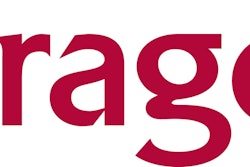
Paragon Software Systems, Inc., a leader in vehicle routing and scheduling optimization solutions, has enhanced its route optimization software to help transport planners simplify the process of managing multi-skilled driver teams.
The new functionality will allow accredited drivers to be considered for standard deliveries if spare capacity exists towards the end of the planning process. This added flexibility will enable plans to use all available resources to increase drops per day and reduce mileage. It has been introduced in response to growing demand from delivery operations looking to differentiate their offering with a wider range of added value services, or field service companies looking to maximize use of their multi-skilled teams.
“By investing a third of our turnover each year in research and development, we are able to continually enhance the capabilities of our advanced software solutions for our customers,” says William Salter, CEO and president of Paragon Software Systems. “The introduction of the multi-skilled driver functionality further demonstrates our commitment to building flexible and practical route optimization software that solves the challenges faced by transport and logistics operations every day.”
The Paragon software will now allow a prioritized skillset to be defined for each driver group, including primary and additional capabilities. The system will initially match work based on core skills to ensure the appropriate resources are available for all skilled jobs, such as product set-up, installation and disposal. Once completed, a refined plan can then be created that takes into consideration secondary skills or alternatively makes underutilized drivers available for unskilled deliveries.
By assigning skills to groups of drivers, in combination with setting vehicle characteristics and product compatibilities, transport operations can target improved fleet flexibility. It also frees up these assets to be assigned to a wider range of deliveries, without being constrained by a rigid set of skill-based restrictions. This ensures mixed deliveries, covering a range of multi-skilled added value services, can be planned without impacting the levels of efficiency or productivity.

















